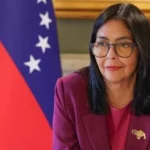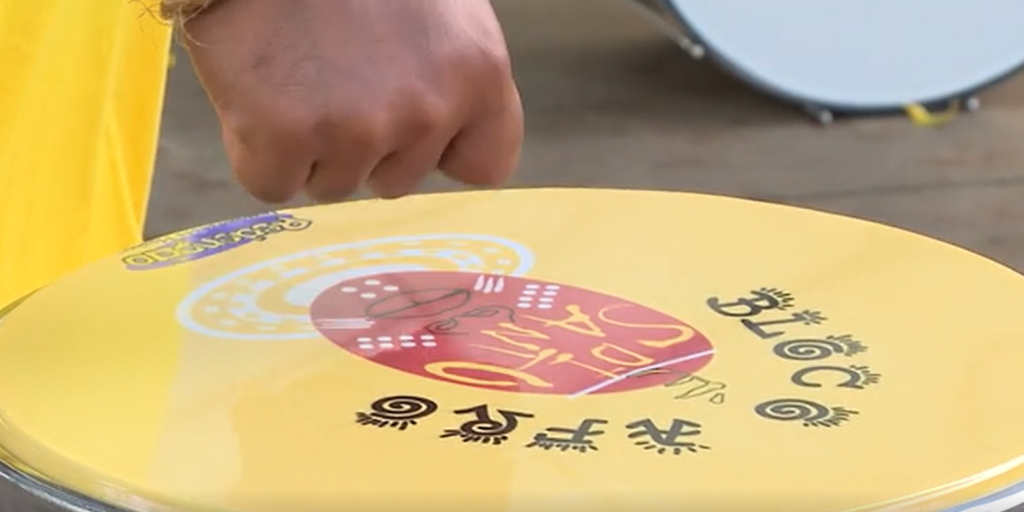The victory of the Radical Civic Union (UCR) in La Pampa in the first elections of 2023 emboldened the centenary party, which left the opposition alliance Juntos por el Cambio (JxC) on the verge of breaking up in Mendoza and caused different referents to of the PRO will begin to make their candidacies official.
After the radical Martin Berhongaray beat PRO candidate Martín Maquieyra by more than 13 points and proclaimed himself the candidate for governor of La Pampa for JxC, tensions escalated again over the pre-candidacies of the coalition in different parts of the country.
Berhongaray celebrated his victory -in elections that had a meager participation of about 15% of the register- together with the radical legislators Martin Lousteau and Emiliano Yacobittiwho went to celebrate in the pampean capital, also bringing the congratulations of the president of the UCR, Gerardo Morales, and the deputy Facundo Manes.
But also, the winner also received a greeting from the head of the Buenos Aires Government, Horacio Rodríguez Larretawho maintains an alliance with Lousteau in the Federal Capital – he is one of the pre-candidates to succeed him – and intends to expand a similar agreement in different parts of the country, in counterpoint to the electoral framework pursued by the president of the PRO, Patricia Bullrich.
Days after this first contest, the alliance between radicalism and the party founded by Mauricio Macri reached its maximum tension in Mendoza, after the radical senator Alfredo Cornejo formalized his candidacy for governor, which not only caused the leader’s discomfort of the yellow party of that province, Omar De Marchi, but also caused a strong discussion between Larreta and Bullrich.
“Cornejo and De Marchi are going to be able to compete in the PASO to see who is the best candidate. What cannot happen is to break the coalition. That threatens the possibilities of JvC and puts individuality above the collective need. It is not within of our coalition’s calculations to break,” Bullrich said in statements to the Mendoza radio station Nihuil.
The fights in Mendoza, Río Negro, Neuquén, Córdoba and Tucumán
In the PASO that will be held in Mendoza on June 11, both leaders will be able to compete for the candidacy, unless De Marchi -Larreta’s dolphin in that province- decides to go outside of JxC.
To avoid that breakout scenario, Bullrich -who supports Cornejo- affirmed that next Monday the intervention or not of the Mendoza PRO will be evaluated.
The outcome in the province of Cuyo could be similar to what happened in Neuquén and Río Negro, where the opposition coalition broke up.
In Río Negro the fracture came after the UCR define a pact with Juntos Somos Río Negro (JSRN), the force headed by Senator Alberto Weretilneck, while, in Neuquén, former Lieutenant Governor Rolando Figueroa received Macri’s blessing to be the PRO candidate on a separate ballot, also causing a rupture of JxC because the UCR and the Civic Coalition (CC) will go with the formula of the deputy Pablo Cervi and the businessman Jorge Taylor.
In Tucumán, on the other hand, at the end of next week The pre-candidacy of the current mayor of San Miguel, Germán Alfaro (PRO), who does share the approval of Larreta and Bullrich, will be presented, but there will be no JxC STEP because there was no agreement with deputy Roberto Sánchez (UCR), Gerardo’s chosen Morales.
Sources assured Télam that the Tucuman candidate of the coalition “will be chosen from Buenos Aires at the last moment”, depending on which one has “greater chances of winning” against the provincial ruling party.
In Córdoba, the dispute is between Senator Luis Juez (Civic Front) and Deputy Rodrigo de Loredo (UCR)the latter being the only one that received the endorsement of weighty leaders such as Morales and Lousteau, while neither Larreta nor Bullrich decided to publicly define themselves for either.
The panorama in CABA
Faced with this scenario of uncertainty in different provinces, the Buenos Aires mayor decided to step on the accelerator in his presidential campaign and, according to reports, he will hold a new act with national projection in March.
In the middle of last December, Larreta had brought together more than 2,000 opposition leaders in Costa Salguero who support his candidacy, among mayors, ministers and governors related to the sector of the “doves” of the PRO.
But the Buenos Aires head of government is not the only JxC candidate who began to agitate his candidacy. Morales took advantage of the shock wave of the radical triumph in La Pampa to ratify his aspiration to the Rivadavia seat and warn the leadership of the coalition that “the interior also exists” and that “there are also candidates” there. “Radicalism brings federalism to JxC,” Morales said this week in statements to IP Noticias.
Beyond revitalizing his party within the opposition front, the radical leader also slipped that “it is possible” that a mayor of his party color will accompany PRO deputy Diego Santilli in “cross formulas”, who this week officially launched his candidacy for Buenos Aires governor.
With an eye-catching campaign on social networks, which featured red plaques that simulated the iconic style of the Crónica TV channel, Santilli joined the PRO leaders who are beginning to speed up their presentations.
Among those who have already expressed their intention to compete in Buenos Aires for JxC are Cristian Ritondo, Néstor Grindetti, Javier Iguacel and Joaquín de la Torre, from PRO; and Maximiliano Abad and Martín Tetaz from the UCR.
While Santilli embodies Larretismo in Buenos Aires, Bullrich supports De la Torre, the provincial senator who dined with Eduardo Bolsonaro (son of former Brazilian president Jair Bolsonaro) in Puerto Madero and was one of the few political leaders in the country who spoke in favor of of the frustrated re-election of the former Brazilian president.
And although it is Bullrich who leads the “hawks” -the hard wing of the PRO-, It was Santilli who flirted with Avanza Libertad deputy José Luis Espertby stating that they share certain “points of agreement”.
In addition to Santilli, another of Larreta’s sides that was shown in the public arena this week is the Buenos Aires Minister of Health, Fernán Quirós, who ratified his aspiration to the Buenos Aires Government and claimed to have “something different to propose to society”.
“Argentina has an individual talent that is respected throughout the world, but it has enormous difficulty building consensus and cooperation teams. In this regard, I have a lot to contribute,” Quirós said in an interview with the América TV channel.
Noting that Larreta’s strategy is “exceeding in terms of achieving truly profound change and building the foundations for long-term development,” Quirós once again placed himself in the arena of possible successors for the Head of Government, in a STEP in which the Minister of Education, Soledad Acuña, the Minister of Government, Jorge Macri, and the Vice President of the Legislature, Emmanuel Ferrario, are already enlisted for the PRO; legislators Ricardo López Murphy and Roberto García Moritán, for the United Republicans, and Lousteau for the UCR.


















